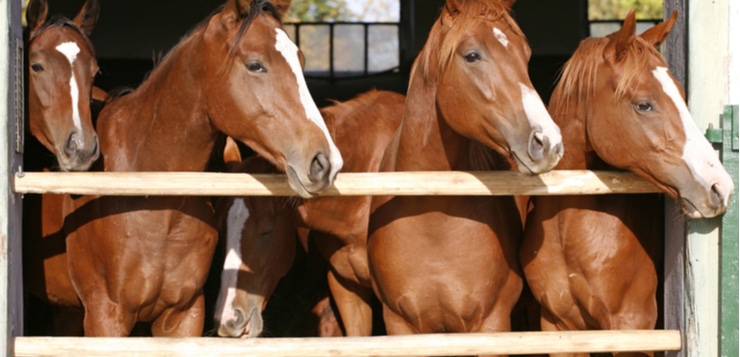You could give Pennsylvania Gov. Tom Wolf credit for persistence, but don’t expect the state’s horse racing industry to give him credit for anything positive.
For the second straight year, Wolf used his annual budget address to announce a proposal to divert the substantial share of casino revenue that supports horse racing purses and have it instead fund tuition assistance at state-owned universities.
Wolf made no direct mention of his revived proposal in the livestreamed message he delivered to legislators Wednesday — most of the focus was on a proposed hike in the state income tax to boost K-12 education funding — but it was part of the 2021-22 budget materials released publicly.
“The governor is proposing a $199 million plan to develop the Nellie Bly Tuition Program by repurposing existing dollars that are right now flowing into the Horse Racing Development Fund,” the governor’s office reported. The program “will help thousands of young people graduate with less debt and start to build lives in our communities rather than struggling to pay student loan bills every month.”
Proposal seems likely to be a longshot again
The tuition proposal mirrors one that collectively had those who make their living from horse racing up in arms last year, only this time the $199 million figure replaces the amount of $204 million used a year ago.
That’s because the amount of money in the Horse Racing Development Fund varies from year to year, based on slots revenue at the state’s casinos. About 10% of annual slots revenue is dedicated to assist horse racing purses and breeding programs.
The horse industry touts itself as a valuable means of supporting Pennsylvania’s agricultural economy, one that was threatened with harm from the state’s original 2004 casino legalization. It lobbied for the subsidy from the outset as a way of adjusting to new competition for gambling dollars that the state’s racetracks had counted on.
Wolf finds the assistance unwarranted, however, and drew ire when stating publicly in last year’s address, “Let’s bet on our kids instead of bankrolling racehorse owners.”
Industry representatives mounted a strong grassroot campaign against the plan, arguing Wolf doesn’t understand the industry. They said horse racing might cease to exist in Pennsylvania without the subsidy, which covers nearly 90% of the purse money currently awarded.
There was no indication last year that state lawmakers ever gave serious attention to Wolf’s proposal. Once the COVID-19 pandemic became widespread in March, with its huge impact on state finances, new initiatives attracted little discussion in Harrisburg.
One other key roadblock to diverting the funds this year, just like last, is that both the state House and Senate are controlled by Republicans. They particularly represent the more rural parts of the state that would be most directly harmed by any cutbacks to the horse industry. It would thus be hard to envision Wolf’s plan receiving the endorsement of the legislature’s GOP leadership when negotiations take place this spring on the budget that takes effect July 1.






